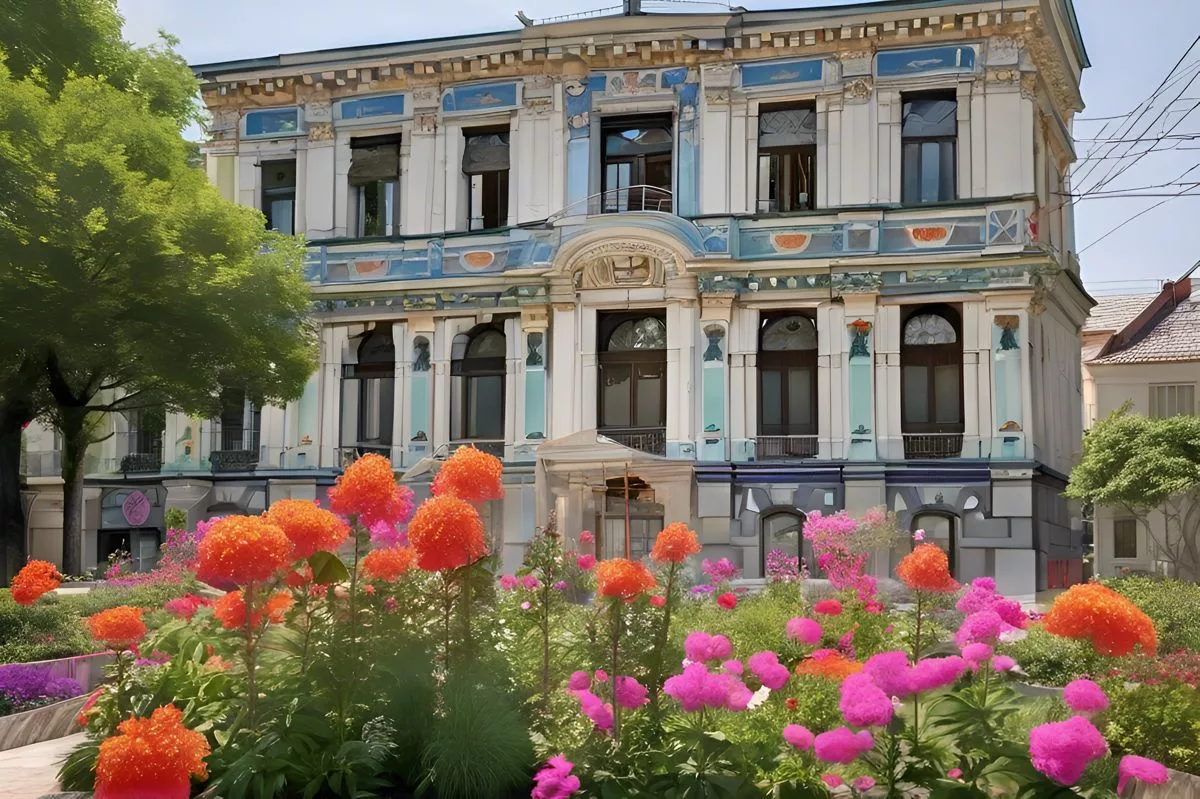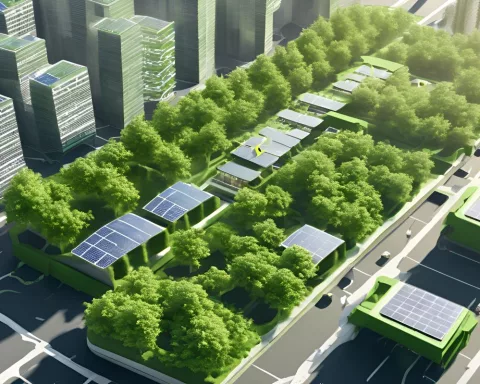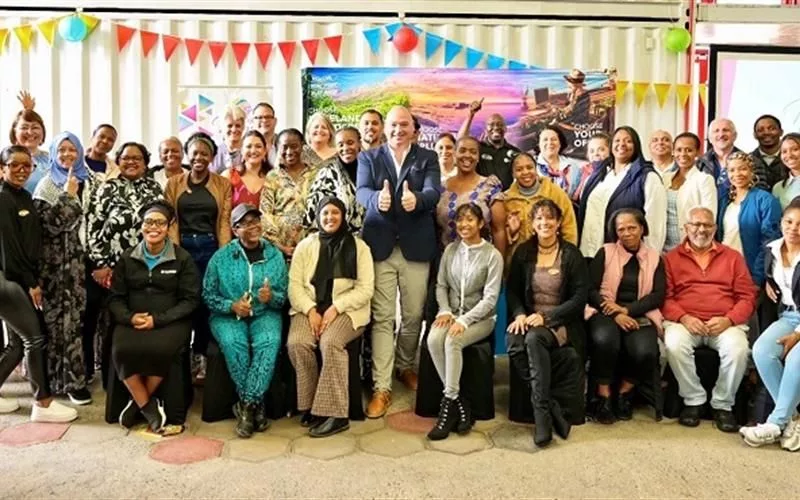Cape Town’s Visible Improvement Programme (VIP) is transforming public spaces into contemporary, secure, and inviting areas. The Kraaifontein Civic Centre has undergone renovations, including a makeover of the public interface, a rejuvenated garden, and restored fountain. The VIP aims to enhance the aesthetics and operational effectiveness of municipal buildings, reflecting the city’s vision for accessible, efficient, and aesthetically pleasing public spaces. The ongoing commitment to improvement resonates with the city’s dedication towards making public spaces visually appealing and user-friendly.
Cape Town’s Visible Improvement Programme (VIP) aims to enhance the aesthetics and operational effectiveness of municipal buildings, with a focus on upgrading waiting areas, landscaping and public restrooms. The Kraaifontein Civic Centre has already undergone a transformation, with renovations including a makeover of the public interface and reception area, a rejuvenated garden and restored fountain. The ongoing commitment to improvement reflects the city’s vision for accessible, efficient and aesthetically pleasing public spaces.
A steadfast determination to turn public areas into contemporary, secure, and inviting spaces is what sets the City of Cape Town apart, leading by example in municipal governance. This commitment was recently exemplified during a visit by Cape Town’s Mayor, Geordin Hill-Lewis, and Alderman Theresa Uys, the Mayoral Committee Member for Corporate Services, to the Kraaifontein Civic Centre.
The Kraaifontein Civic Centre: A Strategic Administrative Hub
Situated on Brighton Road, the Kraaifontein Civic Centre is an integral part of the city’s administrative operations. It serves as a central hub hosting key departments including Finance, Record Management, Economic Growth, Environmental and Heritage Management, among others. This beacon of functionality is currently undergoing a transformation under the guidance of the City’s Corporate Services Directorate and their Visible Improvement Programme (VIP).
The VIP is an initiative rolled out citywide, designed to enhance both the aesthetics and operational effectiveness of municipal buildings. With a keen emphasis on upgrading various elements – from waiting areas and cashier tellers to front gardens and landscaping – the VIP aims to amplify the overall experience for residents.
VIP’s Role in Revamping and Enhancing Public Spaces
The completion of recent upgrades at the Kraaifontein Civic Centre is a clear demonstration of VIP’s vision. The renovation encompassed a makeover of the public interface and reception area as well as the subcouncil offices, thereby crafting an environment that is both refreshing and inviting. Further underlining the meticulous attention to detail, public restrooms on both floors were also rejuvenated.
In terms of outdoor enhancements, the building’s exterior was not overlooked. A much-needed makeover was given to the garden and landscaped area, with the fountain being restored, further enhancing its allure. These improvements strongly reflect the city’s dedication towards making public spaces visually appealing and user-friendly.
Mayor Hill-Lewis, during his engagement with staff and residents, applauded the team’s hard work and expressed optimism that the Capetonians would appreciate the enhancements. This active interaction with the public and staff demonstrates leadership that values feedback and is responsive to the needs of its populace.
The Ongoing Commitment to Public Space Enhancement
However, the revitalization process is far from complete. Future enhancements planned include the renovation of the existing floor and a fresh coat of paint for both the interior and exterior of the building. This ongoing commitment to improvement resonates with the city’s vision for public spaces – to make them accessible, efficient, and aesthetically pleasing to the citizens they serve.
The VIP’s influence extends beyond the boundaries of Kraaifontein. The Cape Town Civic Centre and the Fezeka Administrative Building in Gugulethu have also benefited from this initiative. These edifices now sport new signage and have been made more appealing with the establishment of water-friendly gardens.
The journey of transformation is still underway. Other top-priority projects in the pipeline include Administrative Offices located in Lentegeur, Somerset West, Pinelands, Durbanville, Plumstead, Strand, and Parow, which are anticipated to be accomplished by June 2024.
Reflecting City’s Commitment Towards Its Residents
Public spaces in a city offer a glimpse into its essence and Cape Town, through initiatives like the VIP, is ensuring that this reflection is one of progressive governance, operational efficiency, and aesthetic appeal. It is a city that genuinely cares for its residents, respecting their need for high-quality services in clean, well-maintained environments.
1. What is the Visible Improvement Programme (VIP)?
The Visible Improvement Programme (VIP) is an initiative rolled out citywide by the City of Cape Town, designed to enhance both the aesthetics and operational effectiveness of municipal buildings.
2. What departments are housed in the Kraaifontein Civic Centre?
The Kraaifontein Civic Centre serves as a central hub hosting key departments including Finance, Record Management, Economic Growth, Environmental and Heritage Management, among others.
3. What upgrades have been made to the Kraaifontein Civic Centre?
The recent upgrades to the Kraaifontein Civic Centre include a makeover of the public interface and reception area as well as the subcouncil offices, rejuvenated public restrooms, and renovations to the garden and landscaped area with the restored fountain.
4. What other buildings have benefited from the VIP initiative?
The Cape Town Civic Centre and the Fezeka Administrative Building in Gugulethu have also benefited from this initiative.
5. What other projects are in the pipeline for the VIP initiative?
Other top-priority projects in the pipeline include Administrative Offices located in Lentegeur, Somerset West, Pinelands, Durbanville, Plumstead, Strand, and Parow, which are anticipated to be accomplished by June 2024.
6. What does the VIP initiative reflect about Cape Town’s dedication towards its residents?
The VIP initiative reflects Cape Town’s commitment towards its residents, respecting their need for high-quality services in clean, well-maintained environments. It is a city that genuinely cares for its citizens, making public spaces visually appealing and user-friendly.









